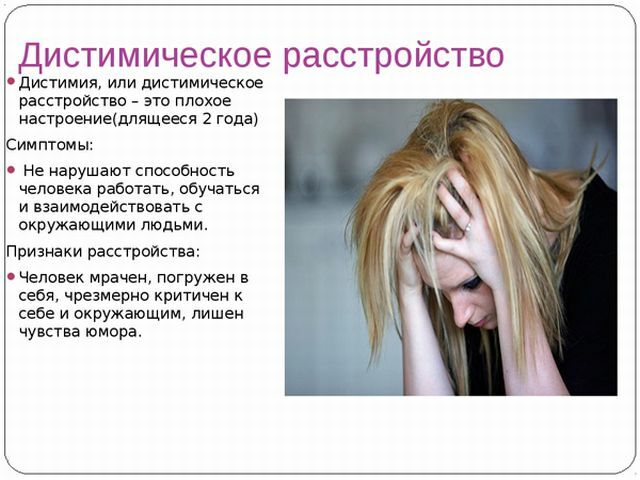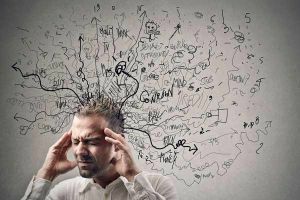 Psychological stress is a consequence, the result of the strongest nervous overstrain, which is provoked by this or that experience. Each emotion, positive or negative, can lead to this type of stress, as the body's reaction to the stimulus.
Psychological stress is a consequence, the result of the strongest nervous overstrain, which is provoked by this or that experience. Each emotion, positive or negative, can lead to this type of stress, as the body's reaction to the stimulus.
In turn, psychological stress is informational and emotional.
Contents of
- Features of psychological stress. ..
- . .. and differences from physical
- Modern theories of
- Features and stages of behavioral reaction
- Stress situation clinic
- The root of the problem - you need to know and know how to search for
- formation mechanism
- recovery methods Do not let yourself stress
Features of psychologicalstress. ..
To provoke psychological stress can anything you like - psychological trauma or insulting word, quarrel or low temperature.
What is characteristic, the person will respond equally, both to a real threat to him, and to a fictional, at the same time, the peculiarity of behavioral reactions to stress in each person is individual, but the essence will be at the root of one. And this is psychological stress.
It can occur both in the walls of your home and outside of it - at work or in a store, school or other place. In any of the cases and situations, it can provoke very serious and serious health problems.
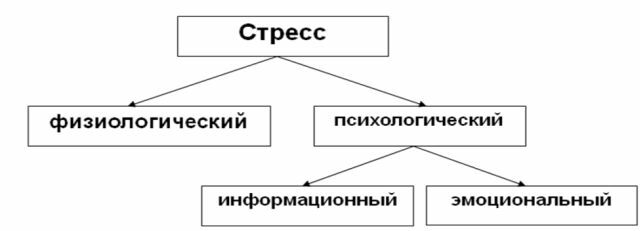
. .. and differences from the physical
Physical and psychological stress dissolve in themselves and not only the reasons for their appearance and development, but also the consequences. So the reasons that cause physical stress can be physical, chemical or biological factors, but psychological - rather social influence, as well as their own thoughts.
With regard to the nature of the potential danger, the physical provokes a real threat, but psychological - such a threat can carry both a real and a virtual nature.
Under physical stress - a negative effect, its effects are directed to the health of the whole body, organs and systems, and when psychological - to the social status, the level of self-esteem and other social parameters.
In terms of emotional experience, physical stress manifests itself in the form of primary emotions such as fear and pain, fear or anger, but the emotional will manifest itself as anxiety and depressive oppression, anxiety and anguish, jealousy or envy.
In the matter of time frames, physical stress will manifest itself only in the present tense or in the near future, having a specific framework, but the psychological will have a fuzzy time frame.
Modern theories
In the matter of existing theories of psychological stress, the following are the most popular:
- The theory of G. Selye .A scientist from Canada explained the nature of stress, as a protective mechanism of the body to biological stimuli - on the basis of conducted experiments he proved that any complex and unusual situation will force a person to adapt. Each stimulus will provoke different behavior in each person individually - he called it an adaptation syndrome.
- The Pavlov Theory .According to his theory, under the influence of emotional experience, overstrain, a person will fall into one
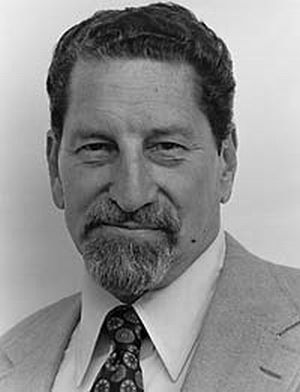 from the following states: apathy, a certain inhibition, in which any activity decreases or hyperactivity develops, expressed in excessive anxiety and extreme activity. Each of them is harmful to the organism in its own way.
from the following states: apathy, a certain inhibition, in which any activity decreases or hyperactivity develops, expressed in excessive anxiety and extreme activity. Each of them is harmful to the organism in its own way. - Theory of Lazarus .R. Lazarus in his theory put forward the idea that both physical and psychological stress factors lead to psychological stress. Among the physical factors, he called weather and pain, trauma and illness, inconveniences at the physical level. To the emotional he relates - small household problems and stresses, conflicts and scandals, monotonous life and divorce, an overestimated expectation and a mismatch with the surrounding reality.
Features and stages of behavioral response
The very process of the course of psychological stress can be conditionally divided into such stages:
- Emotional anxiety .It is at this stage that the very first signs, the response to external stimuli, are manifested. By its duration, it can vary - everything here individually and in time can vary from a few minutes to several days. Even weeks.
- The stage of resistance and adaptation .In this case, the person maximally adapts and strengthens the internal and external resistance of the organism to the external and internal irritant. If the irritation is sufficiently long - there is a gradual adaptation to it, as a habitual habitat. It is at this stage that the patient can effectively analyze the situation and choose the most optimal scenario for himself and the way to overcome stress.
- Depletion stage .If the patient is exhausted, with prolonged influence of stress factors, the patient will feel fatigue and fatigue, chronic devastation. To these unpleasant feelings joins a sense of anxiety and despair - at this stage the ability to adapt and adapt is lost completely, the person simply loses the ability to take certain actions.
Stress situation clinic
Stress can manifest itself in different ways - here the symptoms are exclusively individual. At what the symptomatology will differ depending on at what stage the psychological stress develops. Nevertheless, practicing psychologists distinguish the following psychological symptoms of stress:
- anxiety, developing without cause, as well as a feeling of inner experience and tension;
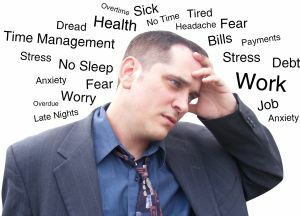
- attacks of quick temper and irritability, aggression and inadequate response to any stimulus;
- inability to control own actions, emotions and words, manage them;
- attention and concentration is reduced at times, the ability to work decreases, memory deteriorates;
- patient yearns, experiencing an oppressed and depressed his condition;
- does not receive a positive charge even from positive news and events, it is pursued by a constant dissatisfaction with yourself and your environment;
- the subject has a capriciousness, the world around him becomes illusory, there is a detachment from his inner self;
- changes taste preferences, as well as diet - the patient refuses to eat or vice versa, eats constantly;
- disturbed sleep, as well as the very behavior of a person, reduced its contact with the society;
The root of the problem - you need to know and know how to search for
 . In the issue of reasons that provoke the development of emotional stress, practicing psychologists call first of all the contradiction existing between internal ideas and the real world.
. In the issue of reasons that provoke the development of emotional stress, practicing psychologists call first of all the contradiction existing between internal ideas and the real world.
Among other things, a stressful state can be provoked by other factors and events that exist in the outside and in the human mind. The main thing is that this event is significant for a person and is no longer so important, positive or negative.
Psychologists distinguish the following significant events for a person:
- death of a loved one or a loved one, divorce or separation from his second half;
- imprisonment and loss of health serious pathology;
- dismissal from work or change in a person's social position;
- availability of debt obligations, with a large amount, and deterioration in the financial position of the person;
- illness of relatives and friends, problems arising with law enforcement and pregnancy;
- problems in the sexual sphere or change of place of residence or work;
- changes in their own habits, diet and working conditions, deterioration of relations in the family.
The reasons and factors can be a mass - how many people, so many and their varieties, and they have a bad property to accumulate, suppressing more and more.
Forming mechanism
In the field of psychology, there are two groups of mechanisms that trigger stress - these are physiological and psychological. So, when considering the physiological group of triggering a stressful mechanism - in this case,
- subcortical system will be used: it activates the work of the human cerebral cortex;
- sympathetic nervous system - it prepares the body for the unexpected influence of stressful, provoking factors, stimulates a decrease in the production of glucose and cardiac activity;
- the subcortical motion centers are activated, controlling instinct, movements and facial expressions, pantomime;
- internal secretion organs begin to work and the mechanism of back afferentation itself is launched.
If we are talking about subconscious devices - those will protect the psyche of every person from the influence of unfavorable factors and to that the practicing psychologists attribute:
- Suppression is the mechanism underlying most other methods and represents the gradual displacement of emotions, memory and memories into the subconscious areaand the patient gradually begins to forget about the most unpleasant situation for him.
- Design - in this case, a person who is dissatisfied with his own action, thoughts, will design them on his environment, attributing this or that person to such an action. The process of self-justification begins.
- Regression - in this situation, the patient simply escapes from his own reality when he crosses the threshold of helplessness, becoming completely indifferent, does not make decisions and does not take the first step.
- Rationalization of is one of the ways to justify yourself and is to find the only culprit that provoked the whole negative, unfavorable situation.
- Sublimation - the most favorable of all the reaction that can develop on stress, is effective both at the subconscious level and in reality. In this variant of events, a person transforms unacceptable behavior, for example, fear or aggression, within the limits of the permissible, expressing it in boxing, sports games or other action.

Methods of recovery
Once in an unpleasant situation, when the psychological stress affects and binds, it is worth knowing how to act, how to defuse the situation and restore your own strength. In this case, the following methods and techniques can help:
- The psychotherapy is a little popular service, but it is quite effective. In this case, it is not just talking about talking to a psychiatrist, but about the fact that an experienced specialist is able to examine and reveal the root cause and peculiarities of psychological stress in his patient, assess the situation and direct a person in the right direction, controlling everything and everything.

- Meditation is an important and useful skill to move away from negative situations, irritating factors, especially for residents of large megacities. Try to go out more often to nature or just to stay in a quiet environment, familiar for inner balance and peace.
- Yoga , which combines physical education and meditation - performing this or that asana, the patient will focus on her, her performance, her body and feelings, moving away from negative thoughts. In this stretching and muscle tension will help overcome the stressful situation at the physical level.
- Respiratory gymnastics - is shown to all emotional people who, by their own character, react emotionally to any stimulus, stressful situation, only exacerbating the situation for the worse. Just 5-10 times calmly and deeply inhale and exhale - it will take a few minutes per day, and the formed habit, which in due course acts at the level of the subconscious will protect from many stressful situations.
Among other methods of recovery can be distinguished and relaxation, as well as distraction, change of environment and physical activity, which, combined with your favorite musical works and communication, will lead the patient out of his unfavorable psychological situation.
We offer to listen to music for stress and nervousness right now:
Do not let yourself stress.
. In the issue of preventing the emergence of stressful situations, there is nothing complicated, and anyone can comprehend the basics of preventing and shielding oneself from negative situations and accordingly emotional, psychological stress. Practicing psychologists note many techniques that can help the patient, his body on a physical and psychological level.
 First and foremost - walk more often in the park, near a lake or river, just in the fresh air. This is an excellent, and most importantly effective, prevention of stress.
First and foremost - walk more often in the park, near a lake or river, just in the fresh air. This is an excellent, and most importantly effective, prevention of stress.
No less effective is the maintenance of a diary or the creation of your own list of cases and thoughts - this method helps you learn how to structure your own thoughts, finding the optimal solution in a given situation.
If you are overtired, the psyche is exhausted at the emotional level - it will help to restore the journey, trekking or simple communication with a pleasant person for you, animals in a calm and communicating environment.
To enhance the positive effect will help and special relaxation techniques - breathing exercises or taking a relaxing bath, a favorite hobby. And, of course - physical activity.



